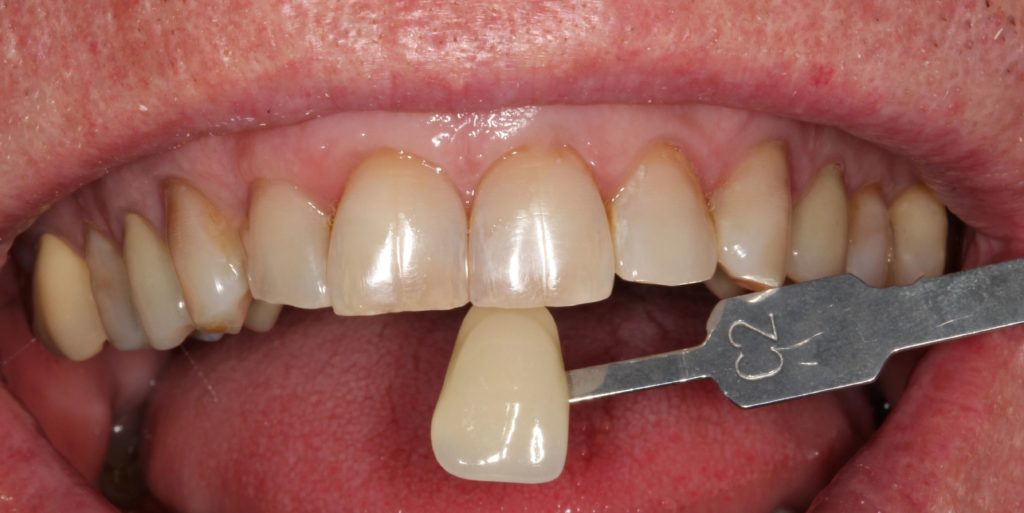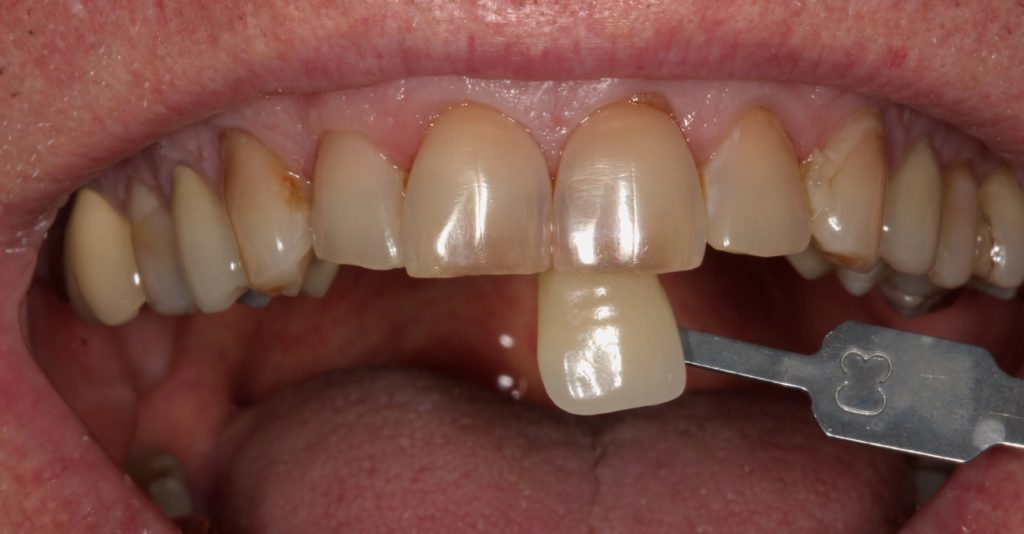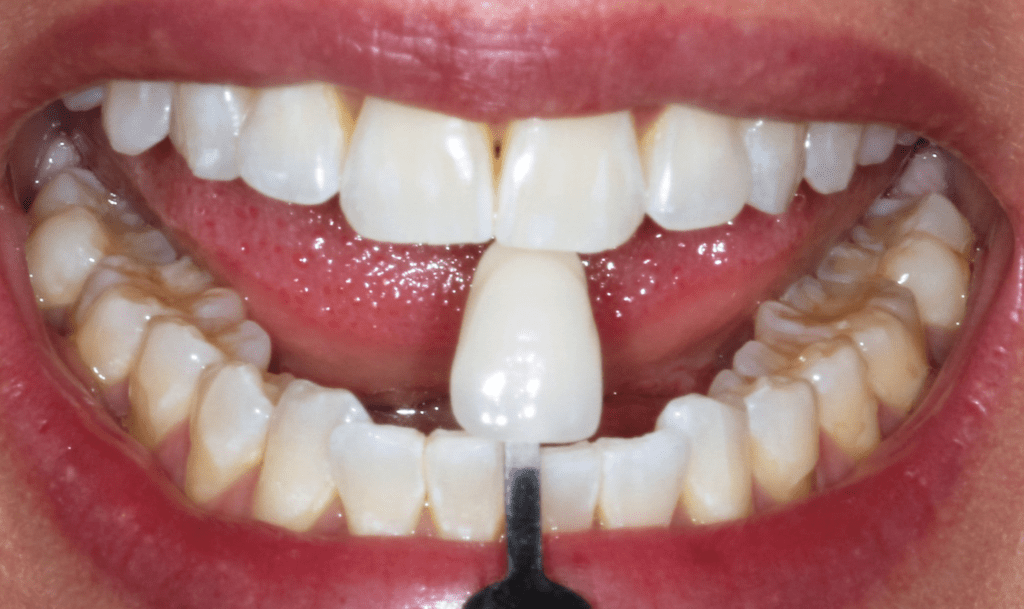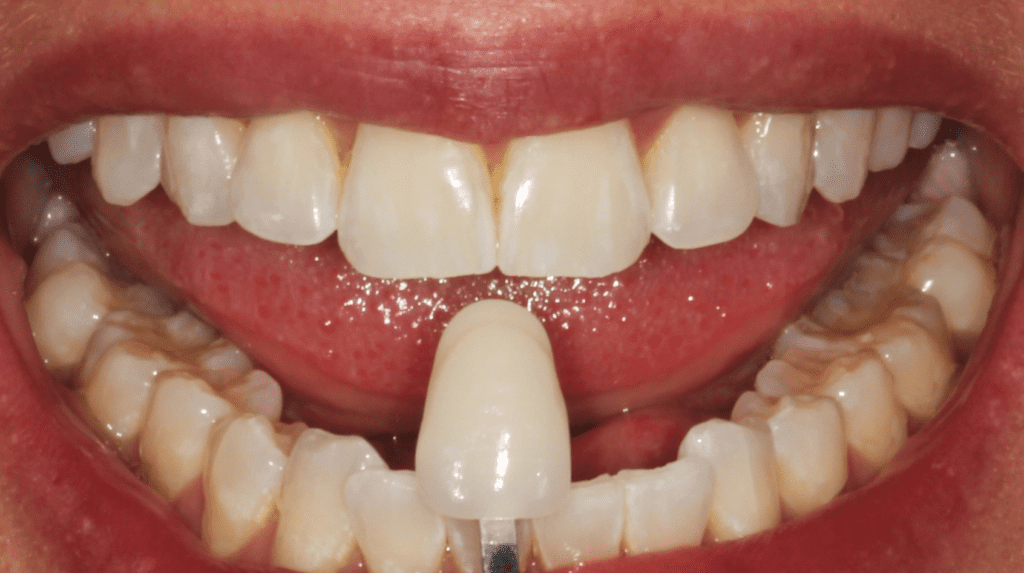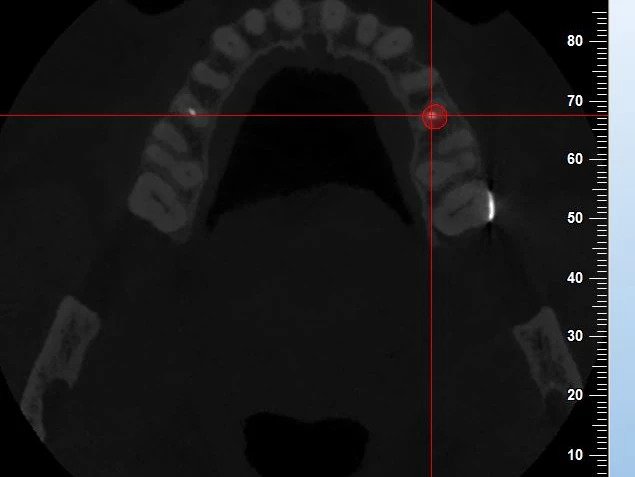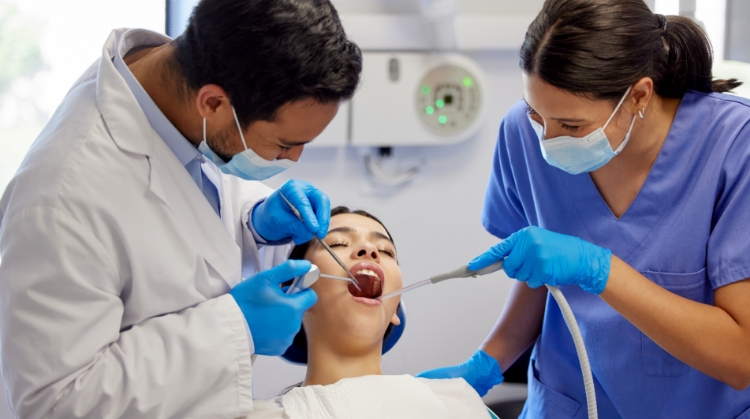1. How does whitening work?
Teeth are made up of an outer layer of enamel and inner dentin layer which contain miles and miles of tiny tubules. The dentin tends to be more of a yellowish color and the enamel more translucent white. Over time the layer of enamel can become thinner and tend to make teeth appear darker or yellower. Stain-causing molecules called chromogens from our diet (think dark colored fruits, dark colored drinks like coffee etc, and chemicals from smoking) can accumulate on and in our teeth over time. This can lead to hard to remove staining or darkening of teeth. Whitening products contain either hydrogen or carbamide peroxide. These remove staining and lighten teeth by penetrating tooth enamel to get to discolored molecules. The whitening agents react with the chromogen molecules through and oxidation reaction, breaking the bonds that hold them together.
2. What options do I have to whiten my teeth?
Many of our patients at On Q Dentistry ask about whitening, but many aren’t aware of the actual procedures available. In our office we are pretty basic, but offer two great treatments. For those who have minor staining or aren’t looking to improve things very quickly we take molds of your teeth and fabricate flexible custom at home whitening trays. You receive a 3-4 weeks supply of bleaching gel to use daily for about 30 minutes. We like the Phillips Zoom whitening products in our office. For those who want to get faster results or with a more difficult case we recommend an in-office procedure in addition to the take home kit. This can be a great option for people who have a wedding or event coming up, or patients with tetracycline or other complicated internal tooth discoloration. Link: https://www.usa.philips.com/c-m-pe/teeth-whitening/zoom-in-office
3. Is whitening safe for my teeth?
Whitening products are fairly benign if used as directed. The biggest concern with whitening is overuse. I find that most people use too much bleaching gel, leave it on too long and use it too often. If it gets on your gums for too long it can cause a temporary whitening that can be sore or tingly, but isn’t permanent or serious. Overuse of bleach products can cause undue sensitivity to hot or cold in some people’s teeth, but this is also usually temporary and can be minimized with proper care.
4. How often do you have to whiten?
With our take home and in-office kits we recommend a 1-2 week “touch up” every 6-12 months depending on your whitening results and overall esthetic goal.
5. What about over the counter products?
Most over the counter products are just slower acting versions of what we use clinically. They will work, but take more time, aren’t as comfortable as custom trays and can be less effective for some cases. The activated charcoal products are not recommended. They only work on external surface stains through mechanical abrasion. Too much abrasion can lead to thinner enamel and ultimately worsening of tooth discoloration. Some products contain an ingredient called bentonite clay, which has been shown in some cases to contain lead.

